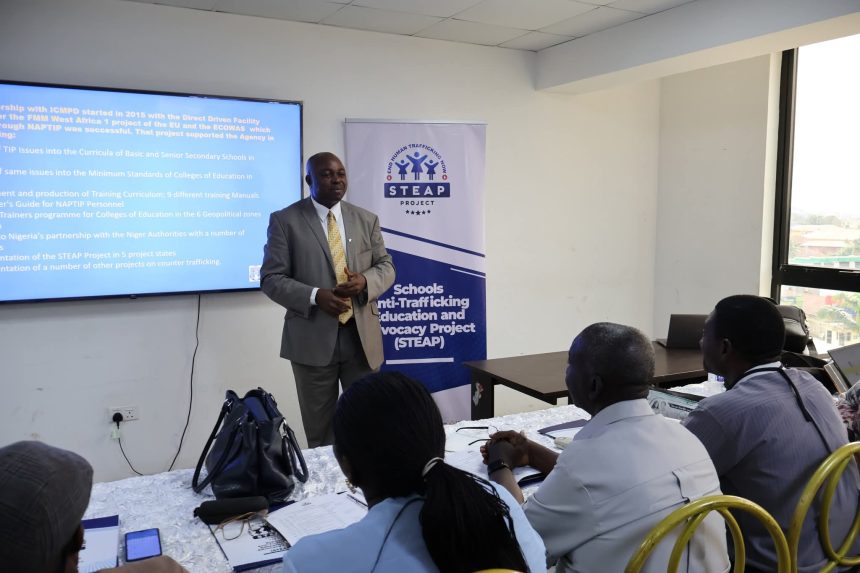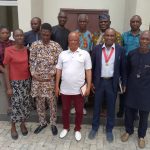The National Agency for the Prohibition of Trafficking in Persons (NAPTIP), has called on Nigerian journalists to place ethics at the centre of their reporting on human trafficking and migration, stressing that sensationalism could derail the fight against the menace.
Speaking at the opening of a two-day media capacity-building workshop in Benin, the Director-General of NAPTIP, Hajia Binta Bello, represented by the Benin Zonal Commander, said the press holds enormous influence in shaping public perception and policy direction.
“As journalists, you are the torchbearers of truth, the defenders of human rights, and the architects of public discourse. Your reporting can influence opinions, shape policies, and shed light on the darkest corners of society. But it is essential that we remain steadfast in adhering to ethical standards, particularly when addressing sensitive topics such as human trafficking,” she said.
Bello noted that a survivor-centred approach is crucial, as careless reporting could stigmatise victims and undermine national efforts. She assured that NAPTIP would continue to strengthen partnerships and strategies to rescue victims, raise awareness, and prosecute offenders.
Also speaking, Mrs. Rhoda Dia-Johnson, Project Manager of the Schools Anti-Trafficking Education and Advocacy Project (STEAP), at the International Centre for Migration Policy Development (ICMPD), said the training was designed to address gaps in media practice that weaken counter-trafficking efforts.
“Human trafficking and irregular migration threaten the safety, dignity, and future of countless Nigerians. Yet, sensationalism and misreporting can frustrate recovery for survivors and weaken awareness campaigns. This workshop equips journalists with the tools to ensure ethical, survivor-centred, and trauma-informed reporting,” she explained.
She added that the training would also build participants’ skills in monitoring and evaluation to improve accountability in counter-trafficking programmes.
The workshop brought together journalists from Edo, Ogun, Delta, Enugu, and Benue States, with facilitators charging participants to embrace ethical storytelling as a tool for social change.






